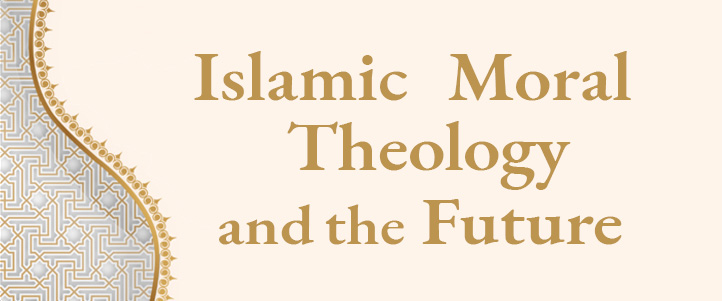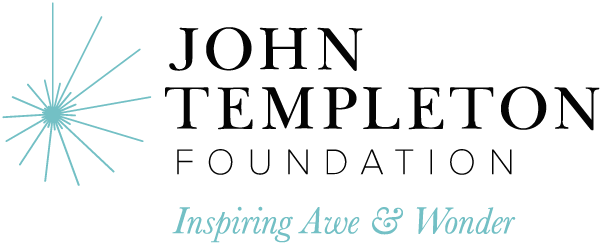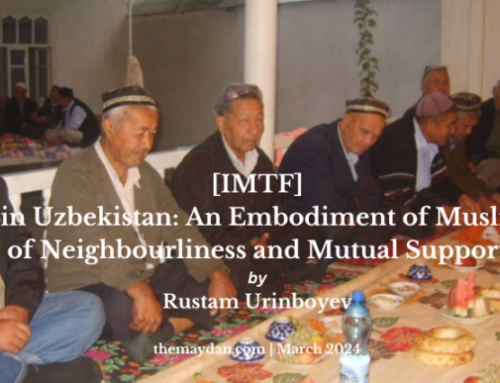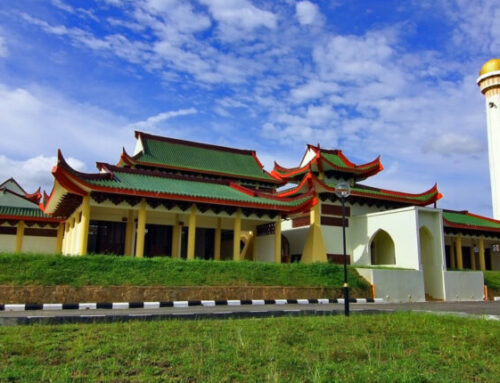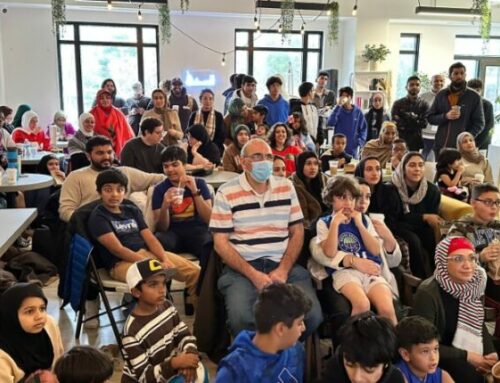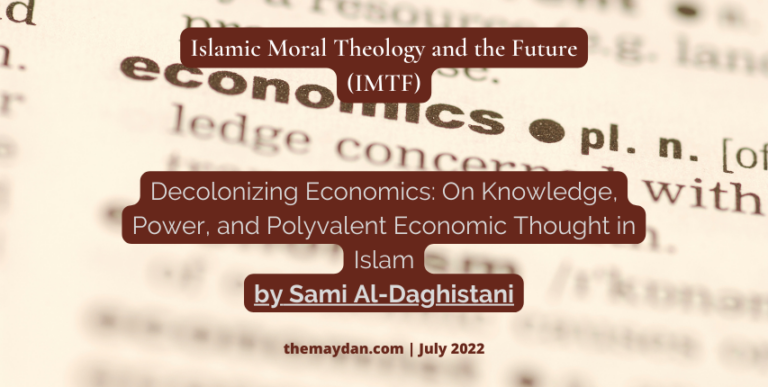
Decolonizing Economics: On Knowledge, Power, and Polyvalent Economic Thought in Islam
On Modern Islamic Economics
Mainstream depictions of economic science and the development of capitalism are by-and-large historically distorted. They ignore power relations and are based upon a particular philosophical understanding of the division of sciences developed under the specific social conditions of early modern Europe. Not only, then, has economics been dominated by white men in the Global North, but the discipline has also paid little attention to economic history and the history of economic thought[1] in non-European contexts and societies. Economics scholarship has been overwhelmingly Eurocentric, yet mainstream economists continue to assert claims about the universality and neutrality of economic science.[2] Modern Islamic economics, as I argue below, is also part of that dynamic. What needs to be introduced to the broader field of economics are more diverse theories and methodologies that offer different analytical lenses. Moreover, specific economic issues do not have to be approached from a purely economic point of view but can and should entail other disciplines, including intellectual history.
I have claimed previously that modern Islamic economics did not evolve from the classical Islamic tradition and the Islamic sciences of nature, which would also include the idea of production of work as a human process.
I have claimed previously that modern Islamic economics did not evolve from the classical Islamic tradition and the Islamic sciences of nature, which would also include the idea of production of work as a human process. Classical Muslim scholars (discussed in my first blog) invoked traditional concepts of price regulations, market mechanisms, expenditures, and so forth, in view of ethical-legal theories that were nonetheless based on metaphysical considerations and hence associated with a particular perception of the universe through an ethical realm. On the other hand, modern Islamic economics, despite its connection to the revivalist project in MENA, South Asia, and Southeast Asia, is largely grounded in liberal philosophy or positivist economics.[3] Modern Islamic economics has, despite its Islamic characterization, also followed neoclassical, Keynesian economics, while national economies in the Arab world range from centralized socialist to free market.[4] In this context, Islamic economics is a modern project that was created within the epistemological and philosophical structures of modernity. Muslim revivalists of the late 19th and early 20th centuries tried to navigate a complex political and social landscape in the background of the European colonial enterprise and did not directly discuss Islamic economics as a system of thought. However, later Muslim scholars and economists[5] tapped into some of the revivalists ideas, including the notion of Sharī‘a as the driving force for a modern Islamic state and society, while basing their reasoning of Islamic economics on the preestablished science of economics, and hence, inadvertently, resorted to dependency on social sciences, linking the advancement of the industrialization process with a particular economic outlook. The development of Islamic economics went hand-in-hand with envisioning of Islamic society within an emerging Islamic state. It is therefore not a coincidence that the foremost Muslims economists were found primarily in Pakistan and other postcolonial states. While in principle, Islamic economics was conceived as a reaction to materialism and capitalism,[6] the majority of modern Muslim economists propose to Islamize the discipline of economics (“Islamization of knowledge”), while others suggest integrating it into the existing economic theories. The modern discipline of Islamic economics was also defined as a part of Islamic law and jurisprudence.[7] Yet, ethical-economic concepts in the premodern tradition, such as ribā (usury), zakāt (alms-tax), kasb (livelihood or acquisition of wealth), faqr (poverty), maṣlaḥa (common good), and others, cannot be squared under the banner of fiqh, since fiqh operates within a different methodological framework than economic science. Moreover, the gist of the classical fiqh discourse was from the very outset theological in nature,[8] hence one of the main differences between classical and modern scholars of Islamic economics is that the former based their arguments on broader cosmological foundations, whereas the latter ground their theories in legal positivism and the modernist discourse as well, which also effected Islamic finance and banking.
The development of Islamic economics went hand-in-hand with envisioning of Islamic society within an emerging Islamic state. It is therefore not a coincidence that the foremost Muslims economists were found primarily in Pakistan and other postcolonial states.
Islamic economics as a discipline combines positive and normative economics, yet its teachings do not always reflect economic reality on the ground in Muslim-majority countries. This means that Islamic economics is often loftily presented either through Islamic ethical tenets, or as a jurisprudential project of fiqh al-muʿāmalāt (commercial transactions under Islamic law), while the most lucrative sub-field of Islamic economics became Islamic finance and banking and its Sharīʿa-compliant engineering. In real time Muslim-majority societies, however, Islamic banks do not challenge financial and capital markets, a component of global capitalism, but rather have been amalgamated into the existing economic order and hence became part of the modernist discourse. It appears that the Islamic finance industry dictates the discourse on economic teachings in Islam rather than the other way around. In other words, what was supposed to be an anti-Western and anti-materialist Islamic economic project has rather been co-opted by the very narrative it allegedly fought against several decades ago. Hence, questions on human development, economic prosperity, distribution of income, unemployment, and environmental sustainability, among many others, remain unaddressed in the field.
Economic ideas do not flourish independently from broader political, social, cultural, and historical structures in which they are rooted.[9] Merging a religious worldview with the division of sciences, which includes the preconceived field of economics, is a fundamental matter of concern for modern Islamic economics. Generating an Islamic economic agent (homo Islamicus), then also means adhering to the existing division of knowledge that is born out of the European experience of nation-state formation. Such endeavors, while in theory claiming an Islamic tenet, were incapable of creating a full-fledged economic theory based on examples from Islamic tradition. The result was a creation of a hybrid economic discipline.
Merging a religious worldview with the division of sciences, which includes the preconceived field of economics, is a fundamental matter of concern for modern Islamic economics. Generating an Islamic economic agent (homo Islamicus), then also means adhering to the existing division of knowledge that is born out of the European experience of nation-state formation.
Instead of imitating the so-called Western industrialized societies and their economic norms,[10] which appear to be a structural pattern by many Muslim economists, what is needed is a moral refashioning and restructuring of a worldview and rethinking of “economics” (or rather economic thought) as a human science based on multifold perspectives and epistemologies. The question thus remains, how the Muslim scholarly community can navigate out of these waters to theorize Islamic economic thought as applied ethics.
Polyvalent Epistemology of Islamic Economic Thought
I propose to study economic teachings in the Islamic tradition through a multifaceted epistemological lens that would necessarily entail a cross-disciplinary conceptual framework centered on the moral self and higher ends. Such an approach goes against analyzing the field of economics by itself, since economic matters in (classical) Islamic scholarship were conceptualized within a broader, metaphysical framework that was often based on an ethical system of Sharī‘a. Its moral cosmology (made out of the metaphysical, the human, and the material that can be found in Qurʾanic discourse) concerns a humanistic outlook toward economy, society, and their inner structures. On an individual level, the cosmological understanding presupposes a particular attitude of the acquisition of wealth, work, and also production processes geared toward higher order that addresses both material and spiritual reverberations of economic conduct, and consists of conceptualizations such as kasb, zuhd (renunciation), faqr, tazkiyya (purification of the self), maṣlaḥa, and others.
The interactions between cultures are often multiple, yet they usually contain a power relation. The relationship between Islamic economics and social sciences is certainly one of power. Muslim scholars borrowed from other cultures throughout the history of Islam. Until the sixteenth century, Islamic culture borrowed from a position of political and intellectual strength, whereas in the modern period, it has been borrowing from a subordinate position in that it assimilated much of Western cultural, political, and economic values. Then, to fully consider the intricate nature of economic processes in Islamic tradition, questioning the positivist universality of social sciences and economics’ methodological individualism seems inevitable. One way to steer away from the positivist nature of economics is the process of indigenization of knowledge, which critiques the modernist discourses and rejects universality of social scientific concepts.[11] The process of indigenization does not imply a wholesale rejection of the sciences due to its European origin but rather points to a process of accounting for historical and epistemological assumptions and encounters. It considers historical knowledge, theories, local worldviews, and cultural practices of indigenous cultures – some of which rely on metaphysical and ethical foundations of economic thought – while decolonizing knowledge by removing ethnocentric bias. This would mean a much deeper analysis of economic thought in Islamic tradition, rather than simply applying methods of ethics, fiqh (substantive law), or taṣawwuf (Sufism or Islamic mysticism) to existing economic postulates and operations.
Instead of Islamizing, Muslim economists should critically engage with the sources of intellectual traditions to point out the different formation of knowledge and concepts, and build their economic foundations bottom-up.
The methodological propositions on natural and social sciences of early modern philosophers and economists of eighteenth- and nineteenth-century Europe, such as Jeremy Bentham (d. 1832), August Comte (d. 1857), John Stewart Mill (d. 1873),[12] and others, fundamentally impacted the development of disciplinary divisions in the following centuries. Classical economics provided the material for what neoclassical economists would turn into a science on its own, importing the mono-utility function.[13] The absence of pluralistic epistemology means a monolithic understanding of the physical realm, which does not accommodate qualitatively different ends and regards ethical categories as “unscientific”.[14]
Within the larger context of indigenizing knowledge, a decolonial economics (and social sciences) allows for a more critical overview of economic discipline. In other words, we will have to affirm multiple sources of knowledge if justice is to be done to Islamic intellectual history in general, and to Islamic economic thought more specifically. Instead of Islamizing, Muslim economists should critically engage with the sources of intellectual traditions to point out the different formation of knowledge and concepts, and build their economic foundations bottom-up. Indigenization as pluralistic epistemology of Islamic cultures provides the framework that allows for applying multiple epistemologies to a particular domain of knowledge. A critical approach to economic teachings would be neither to blindly adopt Western models, concepts, and theories of economic and political development nor to completely reject Western knowledge but to systemically formulate political economy as a study of relations between governmentality and society that is cognizant of ethical qualities. Such a theory would address not only the spiritual significance of labor (hereby I do not refer to the capitalist mode of production, whereby work is seen as liberating factor for those who are subservient to the owners of the means of production) but also the ethical emergence of production processes and their functionality. It is in this sense that the pluralistic epistemology based on Sharīʿa’s moral archetypes brings forth theoretical reverberations of past and present local Muslim cosmologies. Those theories are conducive to Muslim and non-Muslim societies alike.
The Islamic ideal of economic and human development is based on the concept of iqtisad (“economics”), in that it does not pertain to economics in the modern sense of the word through its technical and profit-oriented process, but implies moderation and frugality,[16] which are essentially non-material characteristics and concern one’s behavior and personal traits.
Since economics cannot be theorized on its own terms,[15] it must be incorporated in other domains of human knowledge. The Islamic ideal of economic and human development is based on the concept of iqtiṣād (“economics”), in that it does not pertain to economics in the modern sense of the word through its technical and profit-oriented process, but implies moderation and frugality,[16] which are essentially non-material characteristics and concern one’s behavior and personal traits. These aspects pertain to the here-and-now and the Hereafter. Iqtiṣād, then, needs to be re-evaluated against the colonial dimension of the global economic system; and it must reassess both the existence of economic science and the development of the modern nation-state, in order to reach beyond the legal/financial confinements of contemporary Islamic economics.
Sami Al-Daghistani is a Postdoctoral Fellow at the Norwegian School of Theology, Religion and Society in Oslo, an Associate Faculty Member at the Brooklyn Institute for Social Research in New York, and a Research Scholar at the Middle East Institute at Columbia University. He is the author of Ethical Teachings of Abū Ḥāmid al-Ghazālī: Economics of Happiness (London/New York: Anthem Press, 2021) and The Making of Islamic Economics (New York: Cambridge University Press, 2022), and translator to Slovenian of Ibn Ṭufayl’s Ḥay ibn Yaqẓān (Ljubljana: Kud Logos, 2016) and Ibn Baṭṭūta’s Riḥla (Ljubljana: Publishing House of the Faculty of Social Sciences, 2017).
[1] Devika Dutt, “What Does it Mean to “Decolonize” Economics?,” UCLA International Institute, February 4, 2022.
[2] See e.g. Tim Mitchell, “The Work of Economics,” European Journal of Sociology, Vol. 46, No. 2 (2005): 297-320; Samir Amin, Eurocentrism (New York: Monthly Review Press, 2009).
[3] For more on positivist sociology and economics, see Lionel Robbins, An Essay on the Nature and Significance of Economic Science (New York: St. Martin’s Press, 1962).
[4] See e.g. Syed Farid Alatas, “Islam and Modernization,” in Islam in Southeast Asia: Political, social and strategic challenges for the 21st century, ed. K. S. Nathan and Mohammad Hashim Kamali (Singapore: ISEAS, 2005), 216; Alatas, “Sacralization of the Social Sciences: A Critique of an Emerging Theme in Academic Discourse,” Archives de sciences sociales des religions, vol. 91 (1995): 94–95. See e.g. “Regional Economic Outlook: Middle East and Central Asia,” International Monetary Fund, 2019.
[5] For some of the theories of modern Islamic economics, see e.g. Sayyid Abul Aʿlā Mawdūdī, The Economic Problem of Man and Its Islamic Solution (Lahore: Markazi Maktaba Jama’at-e-islami Pakistan, 1955); Muhammad Abdul Mannan, Islamic Economics: Theory and Practice (Sevenoaks, Kent: Hodder & Stoughton, 1986); Khurshid Ahmad, Studies in Islamic Economics (Leicester, UK: Islamic Foundation, 1981); Muhammad Akram Khan, Introduction to Islamic Economics (Islamabad: International Institute of Islamic Thought, 1994); Monzer Kahf, “Islamic Economics: Notes on Definition and Methodology,” Review of Islamic Economics, vol. 13 (2003): 23–47; Muhammad Aslam Haneef, “Islam, the Islamic Worldview and Islamic Economics,” IIUM Journal of Economics and Management, vol. 5, no. 1 (1997): 39–65.
[6] See Seyyed Vali Reza Nasr, “Towards a Philosophy of Islamic Economics,” Muslim World, vol. 77, no. 3–4 (1987): 175–196; Muhammad Bāqir al-Ṣadr, Towards an Islamic Economy (Tehran: Bonyad Beʾthat, 1984); Alatas, “Islam and Modernization,” 210.
[7] “Islamic economics is in a measure generated through the application of Islamic fiqh.” (Waleed Addas, Methodology of Economics: Secular vs. Islamic (Kuala Lumpur: International Islamic University Malaysia, 2008), 97). Defining Islamic economics as part of Islamic law also makes it look like an internal Muslim debate that does not concern non-Muslims. Rauf Azhar, Economics of an Islamic Economy (Leiden: Brill, 2009), 2.
[8] “The essence of fiqh discussions has always been theological; it is only of late that jurists tend to focus attention on economic matters in two directions.” (Addas, Methodology of Economics, 98).
[9] Karl Polanyi, Great Transformation (Boston: Beacon Press, 2001), 145–147.
[10] See e.g. Rashīd al-Barrawi, Al-Iqtiṣād al-Islāmi (Cairo: Kitāb al-Hurriyyah, 1986).
[11] Alatas, “Sacralization of the Social Sciences,” 89; Syed Farid Alatas, “Reflections on the Idea of Islamic Social Science,” Comparative Civilizations Review, vol. 17, no. 17 (1987): 60–86.
[12] See Jeremy Bentham, An Introduction to the Principles of Moral Legislation (Kitchener, Ontario: Batoche Books, 2001); John Stuart Mill, The Collected Works of John Stuart Mill, volume IV: Essays on Economics and Society, part I, ed. John M. Robson (Toronto: University of Toronto Press, 1967); John Stuart Mill, “On the Definition and Method of Political Economy,” in The Philosophy of Economics: An Anthology, ed. Daniel Hausman (Cambridge:
Cambridge University Press, 2007), 41–58.
[13] See the writings of e.g. Thorstein Veblen, Léon Walras, and Alfred Marshall; see also El-Ansary, “Quantum Enigma and Islamic Sciences of Nature: Implications for Islamic Economic Theory,” in Proceedings of the 6th International Conference on Islamic Economics and Finance (Jeddah: Islamic Development Bank, 2005), 161.
[14] El-Ansary, “Recovering the Islamic Economic Intellectual Heritage,” in Proceedings of the Third Harvard University Forum on Islamic Finance: Local Challenges, Global Opportunities (Cambridge: Cambridge University Press, 1999) 9.
[15] Lawson, Economics and Reality (London: Routledge, 1997), 32, 121, 296.
[16] Ibn Manẓūr, Lisān al-ʿArab, 3642–3644; Alatas, “Islam and Modernization,” 212; Baqir Al-Hasani, “The Concept of Iqtiṣād,” in Essays on Iqtiṣād: The Islamic Approach to Economic Problems, ed. Baqir Al-Hasani and Abbas
Mirakhor (Silver Spring, MD: Nur Corporations, 1989), 24; see also Rafīq Yūsuf al-Maṣry, Usūl al-Iqtiṣād al-Islāmī (Damascus: Dār al-Qalam, 1987).

